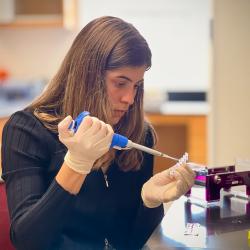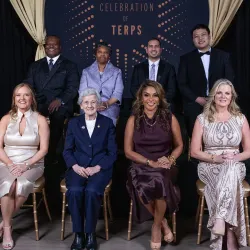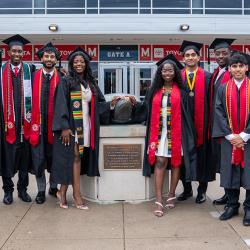University of Maryland Students Win Gold in International Genetically Engineered Machine Competition
The University of Maryland earned a gold medal in the International Genetically Engineered Machine competition (iGEM) held in Boston from Oct. 30 to Nov. 3, 2014.
The competition engages student-led teams from universities across the globe to present novel synthetic biology projects that address real-world problems.
UMD’s gold medal-winning team developed a biosensor to detect the presence of the oyster pathogen Perkinsus marinus, which is commonly found in Maryland's own Chesapeake Bay. The team developed the project, performed lab research over the summer, raised $26,000 for lab supplies and travel costs, conducted an extensive study of human practices related to the project, developed a Wiki page, and presented a poster and presentation at the competition.
The UMD undergraduate student team members included biochemistry majors Pavel Vlasov and Iowis Zhu; biological sciences majors (specializing in physiology and neurobiology) Adip Bhargav and Janine Taira; and bioengineering majors Nathan Barber, Aditya Biswas and Andrew Zhao. Bhargav, Biswas, Taira, Vlasov and Zhu are also students in the university’s Integrated Life Sciences honors program. The team’s advisors were Ed Eisenstein (associate professor, bioengineering), Tanya Gordonov (graduate student, bioengineering), Jason Kahn (associate professor, chemistry and biochemistry) and Boots Quimby (associate director, Integrated Life Sciences honors program).
The UMD team competed against 295 teams worldwide: 82 Asian teams, 67 European teams, 14 Latin American teams and 82 North American teams.
The team is currently recruiting team members for the 2015 iGEM competition.







